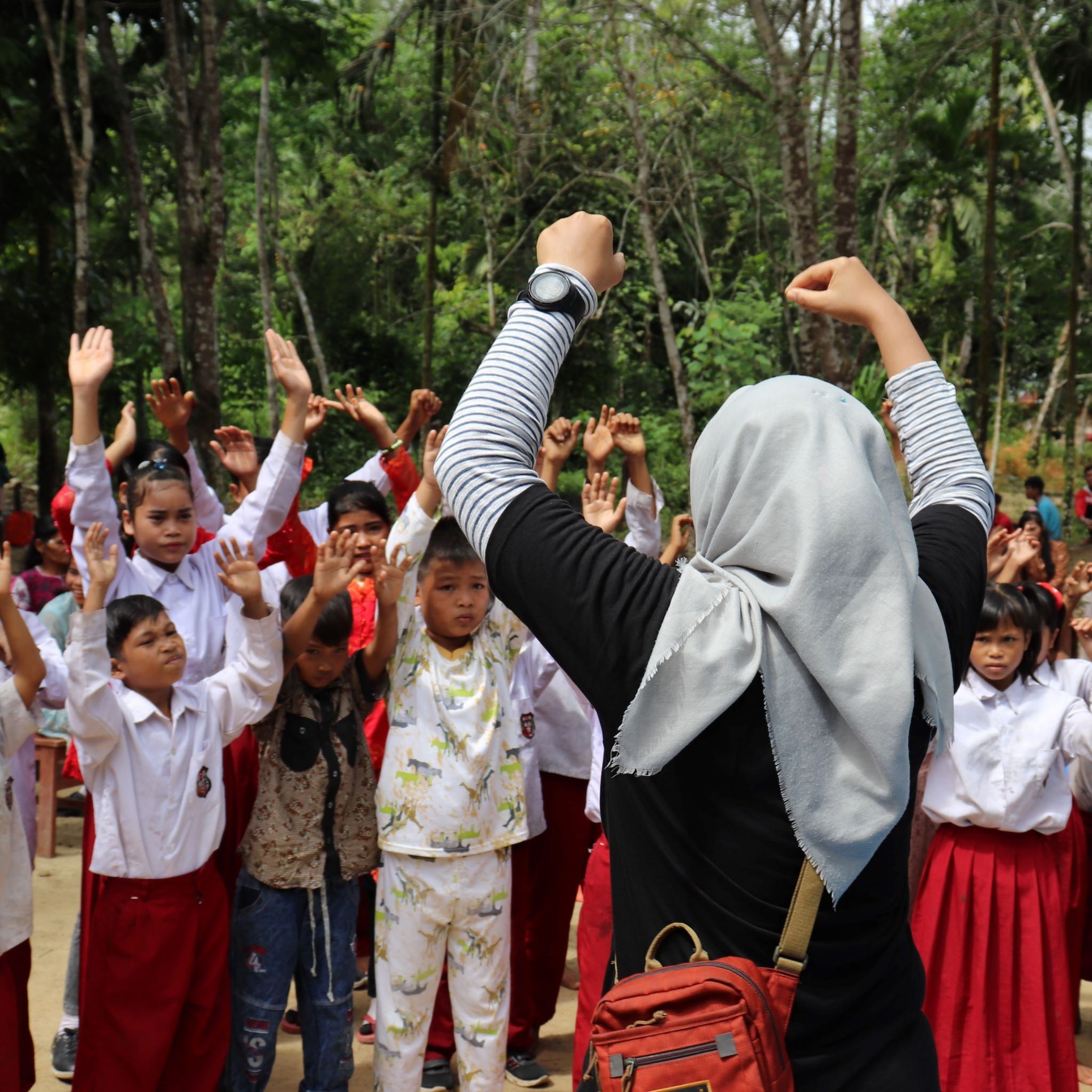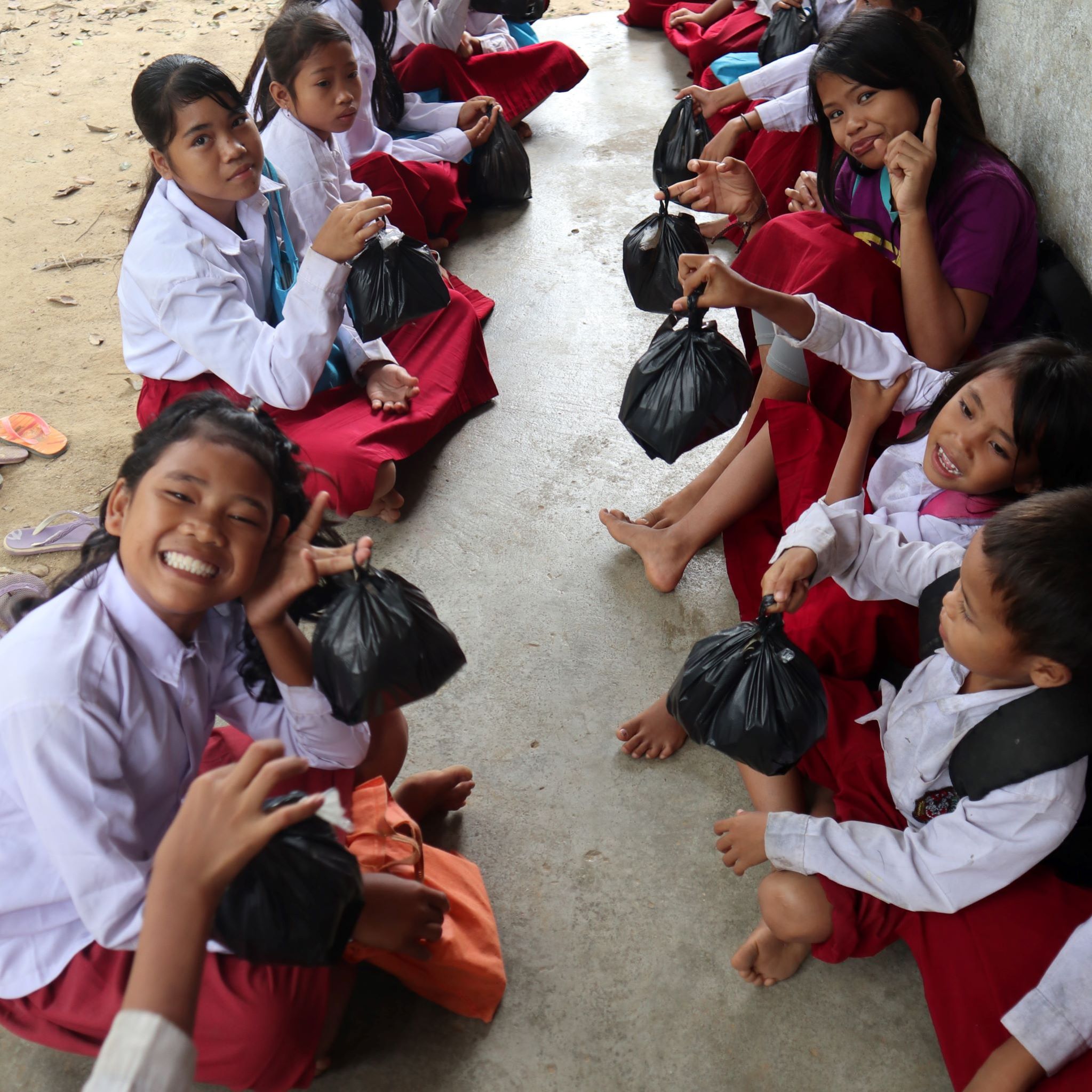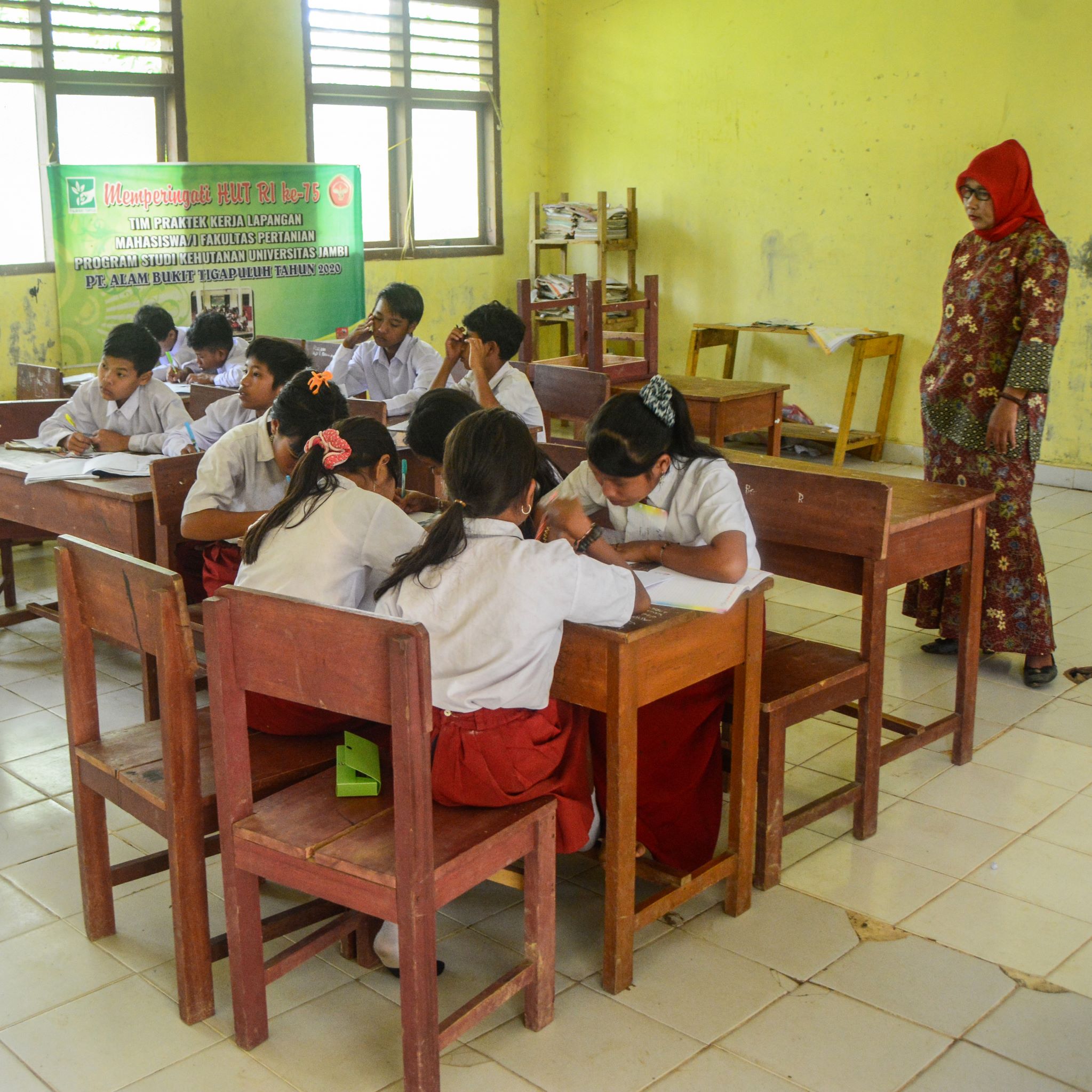We can’t protect Critically Endangered Sumatran elephants and their habitats without also working with and supporting the local and Indigenous communities who live within the ecosystems we’re trying to save.
When forests are destroyed, local and Indigenous people suffer the most, losing clean water sources, healthy soils, and access to ancestral land. We have a strong commitment to empowering and supporting communities in Sumatra, with a special focus on the Talang Mamak Indigenous community living within the Bukit Tigapuluh Ecosystem.
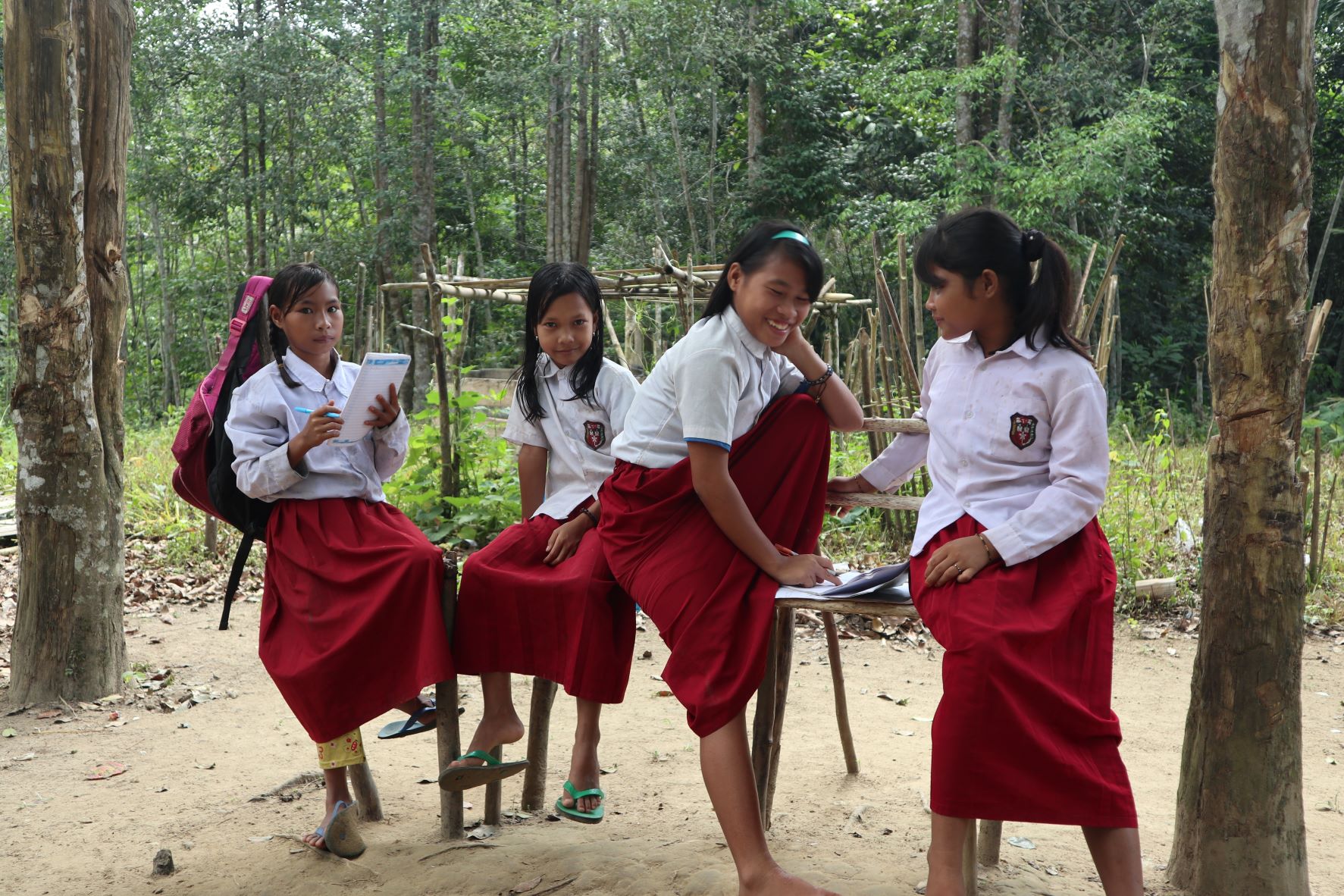
The Talang Mamak are a non-nomadic Indigenous community of about 8,000 people who live solely in the Bukit Tigapuluh landscape. We partnered with the Frankfurt Zoological Society and WWF Indonesia to focus on conservation of the buffer zone of the forest and protection of the species that live there. Before we developed conservation programs, it was vital that we engage with the Elders of the community to understand their needs and priorities. They identified that the health, wellbeing and education of their children was their first priority, and we needed to address this issue before anything else.
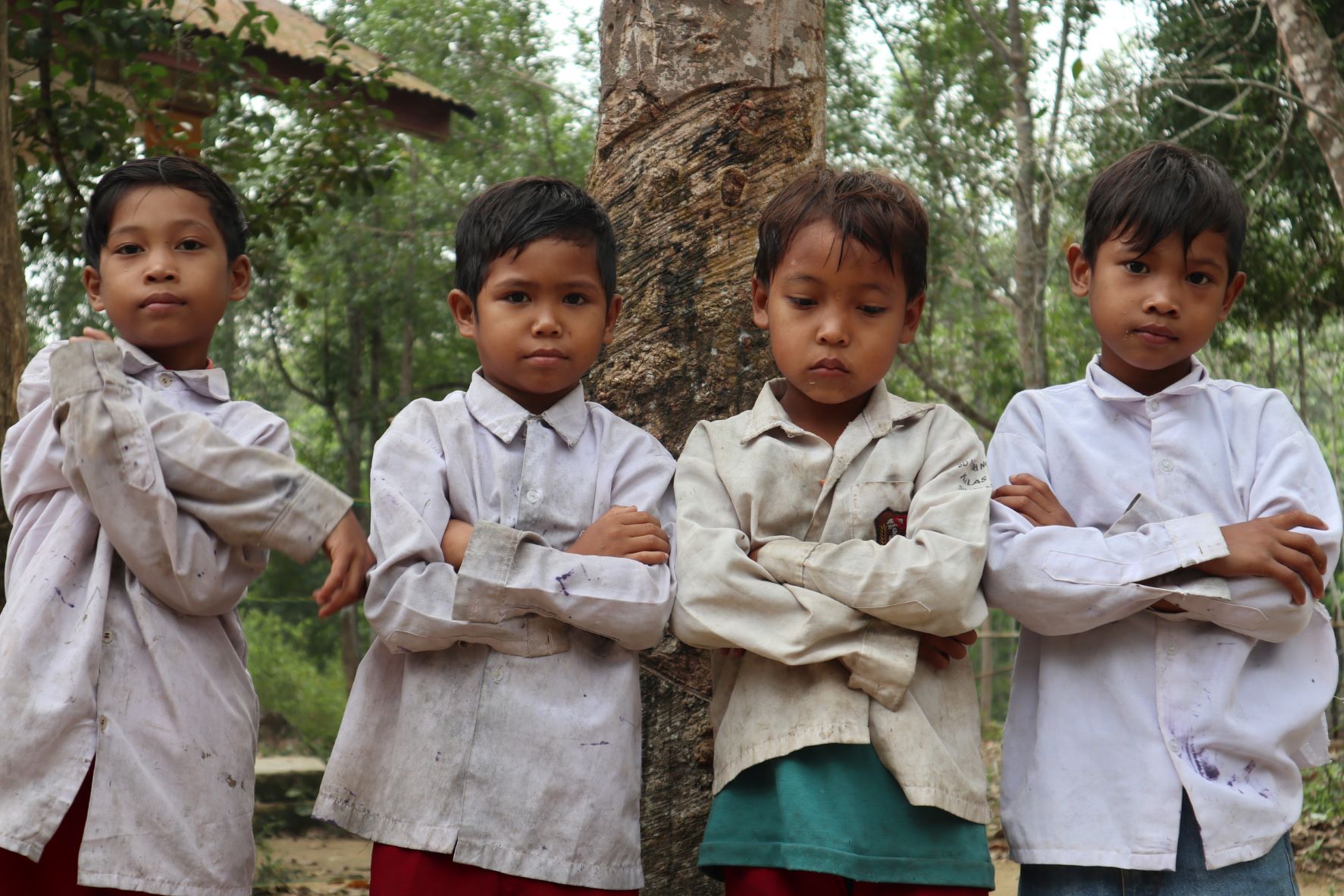
Children were going to school hungry or not attending at all, and the community asked for support for their children as the first step. In February 2019, we started funding nutritious meals and snacks for the Talang Mamak children at their school, and the program has gone from strength to strength since then. The children are taught and encouraged by their two female teachers, Mrs Husrinawati and Mrs Fatma Erni. Both hold a Bachelor of Education degree and along with their teaching responsibilities, they also coordinate the food program for the children.
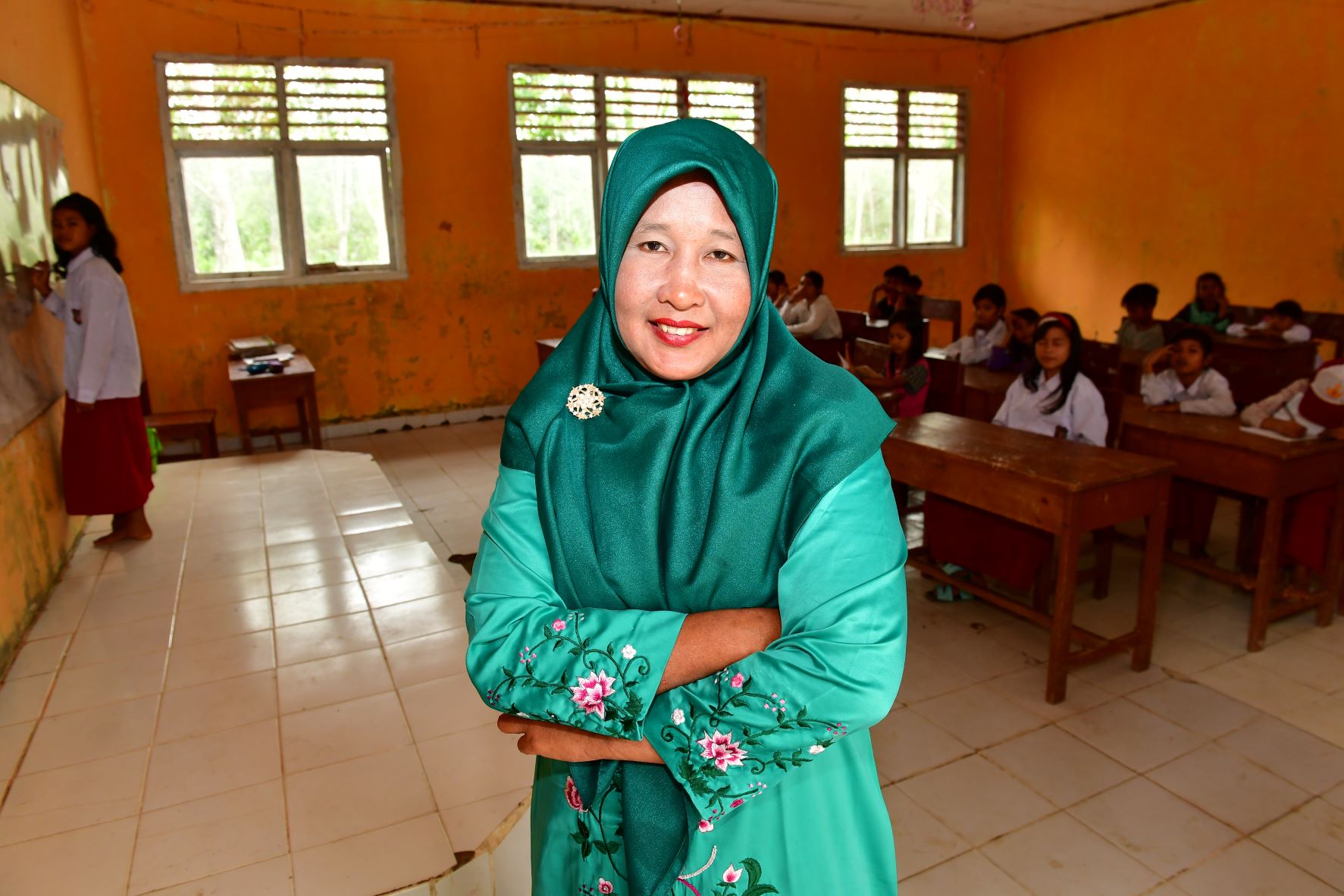
Over the past four years, there has been a noticeable difference in the children’s learning, school attendance, health and development. The entire community is benefiting, and new projects with the Elders and adults are transforming their environment and their awareness and knowledge of how to co-exist peacefully with the many species who live in the Bukit Tigapuluh landscape. Importantly, at least sixty people are employed by the school food program and other new programs.
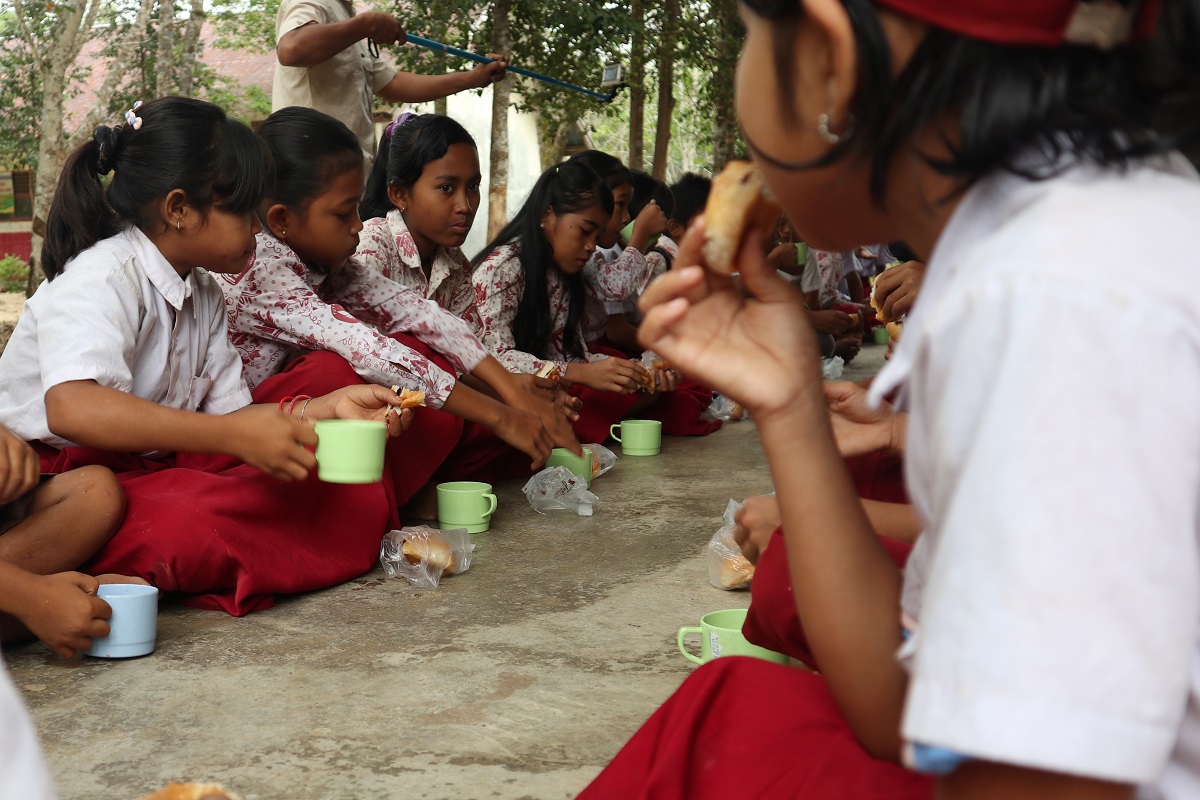
The direct impact of the program can be seen in the increasingly effective teaching and learning activities at the school. The teachers' enthusiasm and dedication is very high. Parents have also seen this change because they no longer worry about sending their children to school. The level of attendance has increased dramatically compared to the first year of the program, and younger siblings now can’t wait to start school. The children learn better, are more focused in the classroom, achieve more each year, and the teachers are able to teach more effectively with fewer disruptions. There is real joy in learning in this school, and the teachers love being able to educate the next generation of Talang Mamak people. Check out the video of the program below.
In addition to supporting their education, we also organise health workers to visit the village and assist the community on a regular basis. As well as basic health checks, administration of drugs and immunizations, and providing health education, the students are also weighed and measured.
These activities demonstrate to the community that we’re here for the long haul, and that we will work alongside them to achieve their goals. This is community development in action, with a long-term conservation goal. Increasing the children’s participation in school and their overall health and wellbeing is a sustainable way to reduce poverty and improve economic growth for the community.
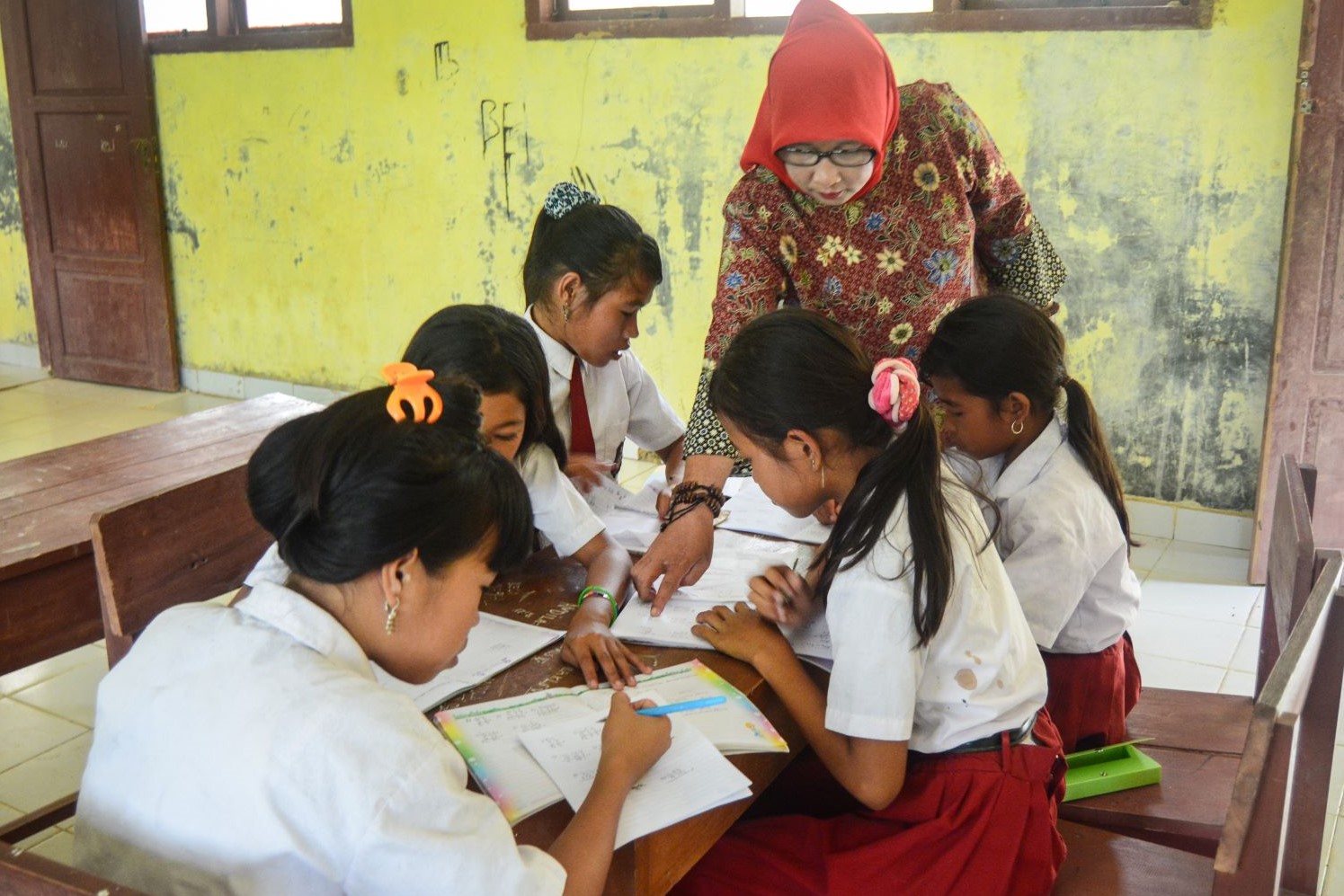
The trust and the positive relationships that have been built between our staff on the ground and the Talang Mamak community is leading to profound environmental change and understanding in the community as a whole. New organic gardening and sustainable farming workshops are being conducted, and the children and their parents are learning about the value of Critically Endangered species and the value of the rainforest.
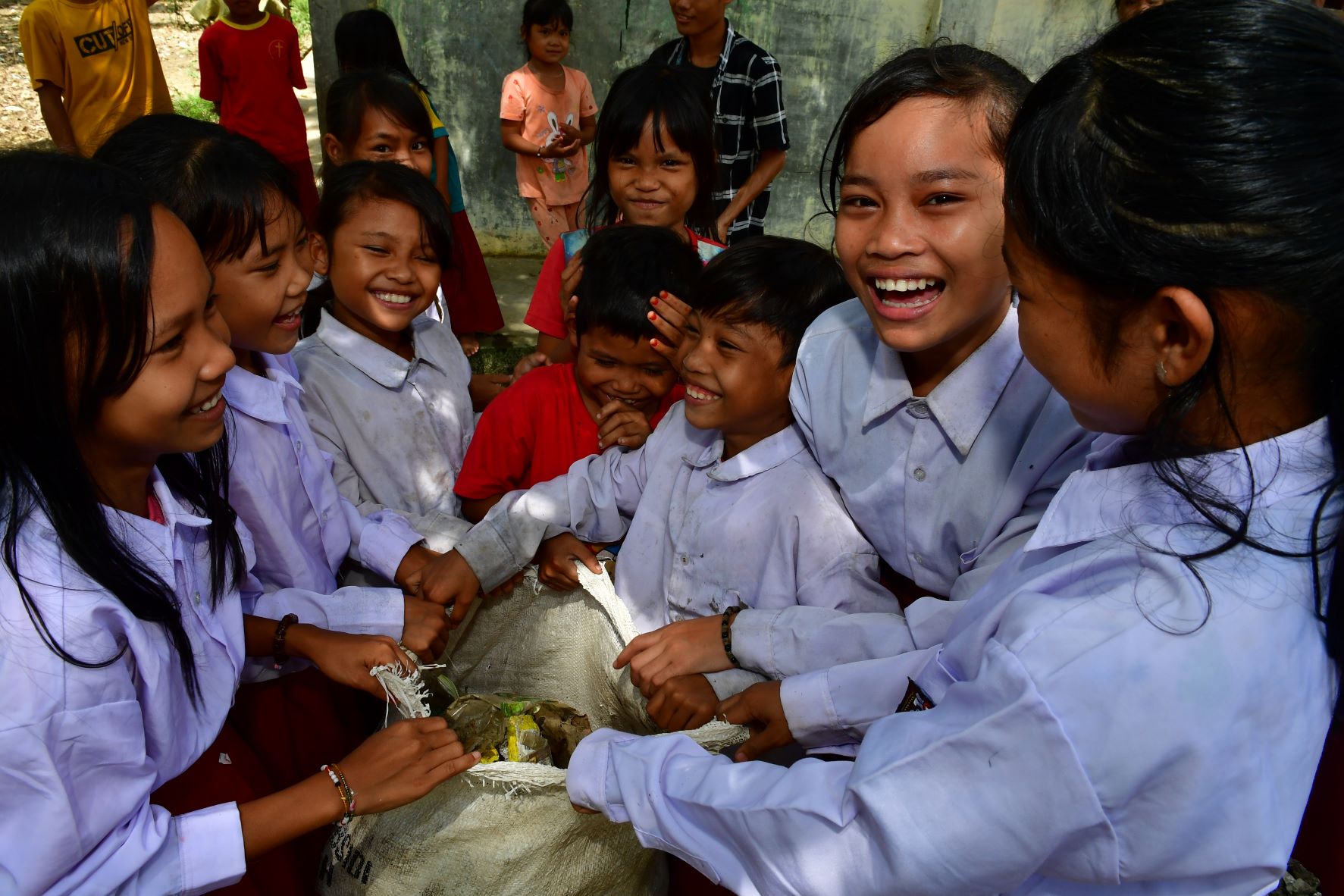
The secondary objective of the project is to build a future educated workforce to provide better opportunities of employment for the Talang Mamak community, increasing their potential for earnings and lifting them out of poverty. Employment opportunities will reduce the desire to engage in illegal logging or the illegal wildlife trade, helping to protect Critically Endangered wildlife and also providing a more sustainable future for this impoverished community.
Read more about our Talang Mamak Indigenous Community Support program here.
